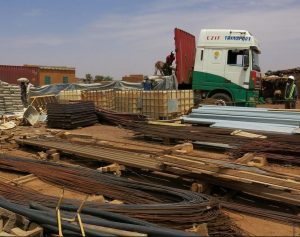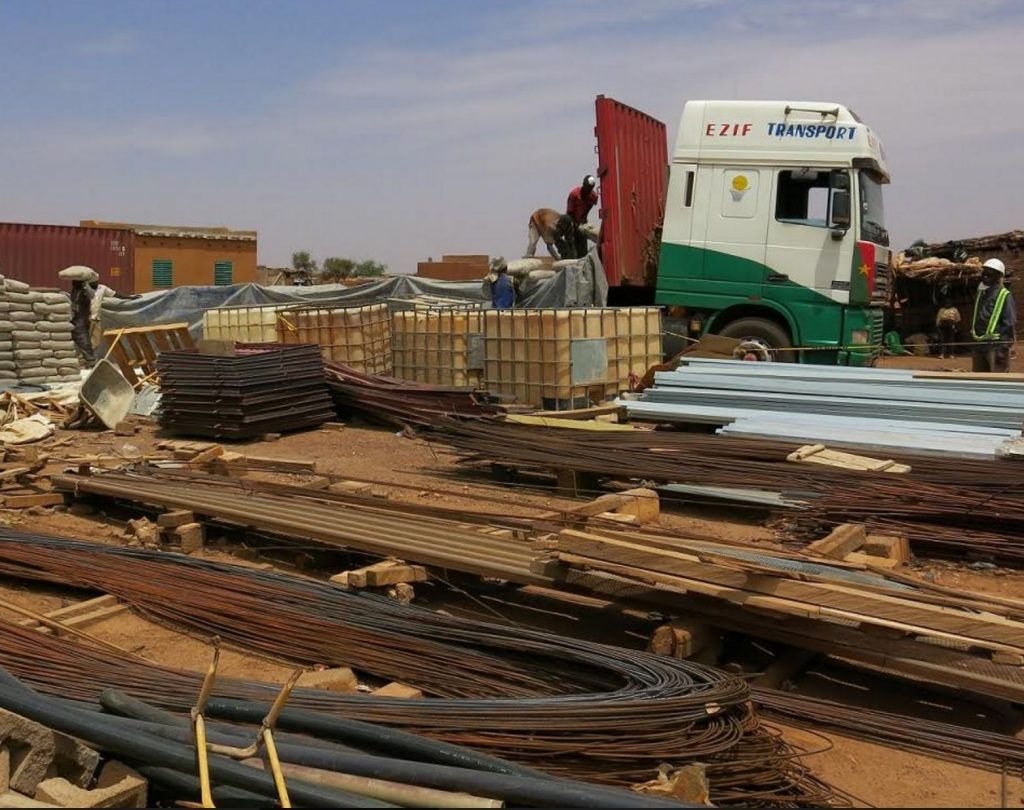[caption id="attachment_1003719103" align="aligncenter" width="541"]
 Local procurement is the best way for the mining industry to support local economies. (Credit: Engineers Without Borders Canada)
Local procurement is the best way for the mining industry to support local economies. (Credit: Engineers Without Borders Canada)[/caption]
TORONTO – Purchasing of goods and services in mining host countries represents the single largest potential economic impact for most mines, according to
Engineers Without Borders Canada, and toward that gold it – along with the German international development agency GIZ – has launched a new mechanism to report local mining procurement.
The Mining Local Procurement Reporting Mechanism (Mining LPRM) builds on the momentum of the Global Reporting Initiative, Extractive Industries Transparency Initiative (EITI), and other projects to increase transparency in natural resource management, and to help host countries counter the "resource curse." The curse – that local economies gain little from resource development – is commonly seen in sub-Saharan Africa and other developing regions because the majority of goods and services used in mining come from outside the host economy.
Mining operations are facing increased expectations of what extraction should contribute to development, and countries are now placing "local content" regulations on companies. Demonstrating their economic contributions to host economies is a central strategy leading companies are using to help ensure their social licence to operate.
The Mining LPRM seeks to build on the momentum of the Extractive Industries Transparency Initiative (EITI), the Global Reporting Initiative (GRI), and other systems that have increased transparency and improved management of mining for the benefit of host countries and communities.
“If mining is to contribute to economic development in host countries, it cannot exist as an enclave disconnected from the rest of the economy”, project lead Jeff Geipel says. “However, we cannot manage what we do not measure, and so the Mining Local Procurement Reporting Mechanism helps the global mining industry work with host countries to increase local procurement to create more economic development”.
The Mining LPRM provides a common language for the global mining sector to use to improve management and empower host country stakeholders, and ultimately keep more of the benefits of mineral extraction in the countries that host it.
Based on extensive consultation with the mining industry, host governments, suppliers, and other stakeholders, the LPRM is a set of disclosures to guide the reporting of mine sites. It has three main three main goals:
- Improved management to increase local procurement;
- Empowerment of local communities affected by mining activity; and
- Increased transparency in the mining and extractives sector.
Emily Nickerson from Engineers Without Borders Canada adds, “In addition to helping mining companies work with suppliers to increase local procurement, the Mining Local Procurement Reporting Mechanism also helps increase transparency around what is usually the single largest payment type a mining operation will make during the mining life cycle”.
Presented at the London School of Economics on Monday, and on Wednesday in Bonn at Germany’s Federal Ministry for Economic Co-operation and Development, the Mining LPRM is available at
www.MiningSharedValue.org in the “Our Work” section.

 Local procurement is the best way for the mining industry to support local economies. (Credit: Engineers Without Borders Canada)[/caption]
TORONTO – Purchasing of goods and services in mining host countries represents the single largest potential economic impact for most mines, according to Engineers Without Borders Canada, and toward that gold it – along with the German international development agency GIZ – has launched a new mechanism to report local mining procurement.
The Mining Local Procurement Reporting Mechanism (Mining LPRM) builds on the momentum of the Global Reporting Initiative, Extractive Industries Transparency Initiative (EITI), and other projects to increase transparency in natural resource management, and to help host countries counter the "resource curse." The curse – that local economies gain little from resource development – is commonly seen in sub-Saharan Africa and other developing regions because the majority of goods and services used in mining come from outside the host economy.
Mining operations are facing increased expectations of what extraction should contribute to development, and countries are now placing "local content" regulations on companies. Demonstrating their economic contributions to host economies is a central strategy leading companies are using to help ensure their social licence to operate.
The Mining LPRM seeks to build on the momentum of the Extractive Industries Transparency Initiative (EITI), the Global Reporting Initiative (GRI), and other systems that have increased transparency and improved management of mining for the benefit of host countries and communities.
“If mining is to contribute to economic development in host countries, it cannot exist as an enclave disconnected from the rest of the economy”, project lead Jeff Geipel says. “However, we cannot manage what we do not measure, and so the Mining Local Procurement Reporting Mechanism helps the global mining industry work with host countries to increase local procurement to create more economic development”.
The Mining LPRM provides a common language for the global mining sector to use to improve management and empower host country stakeholders, and ultimately keep more of the benefits of mineral extraction in the countries that host it.
Based on extensive consultation with the mining industry, host governments, suppliers, and other stakeholders, the LPRM is a set of disclosures to guide the reporting of mine sites. It has three main three main goals:
Local procurement is the best way for the mining industry to support local economies. (Credit: Engineers Without Borders Canada)[/caption]
TORONTO – Purchasing of goods and services in mining host countries represents the single largest potential economic impact for most mines, according to Engineers Without Borders Canada, and toward that gold it – along with the German international development agency GIZ – has launched a new mechanism to report local mining procurement.
The Mining Local Procurement Reporting Mechanism (Mining LPRM) builds on the momentum of the Global Reporting Initiative, Extractive Industries Transparency Initiative (EITI), and other projects to increase transparency in natural resource management, and to help host countries counter the "resource curse." The curse – that local economies gain little from resource development – is commonly seen in sub-Saharan Africa and other developing regions because the majority of goods and services used in mining come from outside the host economy.
Mining operations are facing increased expectations of what extraction should contribute to development, and countries are now placing "local content" regulations on companies. Demonstrating their economic contributions to host economies is a central strategy leading companies are using to help ensure their social licence to operate.
The Mining LPRM seeks to build on the momentum of the Extractive Industries Transparency Initiative (EITI), the Global Reporting Initiative (GRI), and other systems that have increased transparency and improved management of mining for the benefit of host countries and communities.
“If mining is to contribute to economic development in host countries, it cannot exist as an enclave disconnected from the rest of the economy”, project lead Jeff Geipel says. “However, we cannot manage what we do not measure, and so the Mining Local Procurement Reporting Mechanism helps the global mining industry work with host countries to increase local procurement to create more economic development”.
The Mining LPRM provides a common language for the global mining sector to use to improve management and empower host country stakeholders, and ultimately keep more of the benefits of mineral extraction in the countries that host it.
Based on extensive consultation with the mining industry, host governments, suppliers, and other stakeholders, the LPRM is a set of disclosures to guide the reporting of mine sites. It has three main three main goals:
Comments